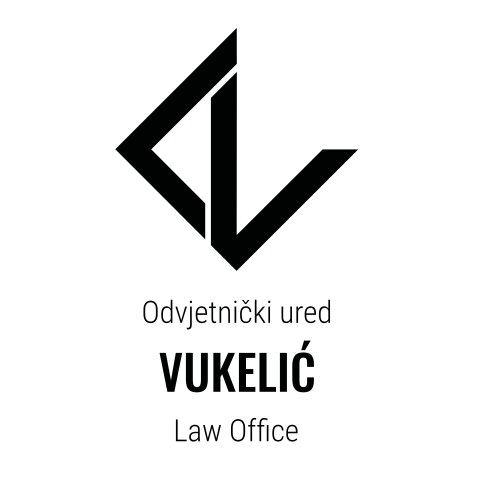Best Appeal Lawyers in Croatia
Share your needs with us, get contacted by law firms.
Free. Takes 2 min.
Or refine your search by selecting a city:
List of the best lawyers in Croatia
About Appeal Law in Croatia
Appeal law in Croatia is a significant aspect of the judicial process, allowing parties to seek a review of decisions made by lower courts. It falls under the jurisdiction of administrative, civil, and criminal law branches, enabling litigants to contest court decisions they believe to be incorrect due to a misapplication or misinterpretation of the law, or where there are concerns about procedural fairness. The appellate courts in Croatia are tasked with examining the legal aspects of a case rather than the factual findings made during the original trial.
Why You May Need a Lawyer
Individuals may require the assistance of a lawyer when pursuing an appeal in Croatia due to the complex and formal nature of the process, which includes strict timelines and procedural requirements. Common situations where legal help might be essential include disputing a criminal conviction, challenging a civil court judgment, appealing administrative or governmental decisions, and seeking redress for perceived legal errors or unfair rulings. A skilled lawyer can navigate the appellate process, articulate legal arguments effectively, and help improve the chances of a favorable outcome.
Local Laws Overview
Croatian appeal procedures vary significantly depending on the type of case. Here are key aspects relevant to appeals:
- Civil Appeals: Governed by the Civil Procedure Act, civil appeals typically go to the appellate court or directly to the Supreme Court for certain cases. The appeal must often be filed within a specific period, usually within 15 days of the judgment.
- Criminal Appeals: Under the Croatian Criminal Procedure Act, parties have the right to appeal against judgments involving conviction or sentencing. Appeals may focus on legal misinterpretations, procedural errors, or unfounded factual conclusions.
- Administrative Appeals: Administrative disputes may be appealed under the Administrative Disputes Act, often involving decisions by public bodies. Such appeals target the legality and fairness of administrative decisions.
Frequently Asked Questions
What is the time limit for filing an appeal in Croatia?
Typically, appeals must be filed within 15 days of the court's decision, but this can vary depending on the type of case and specific circumstances.
Can new evidence be introduced during an appeal?
In general, appeals focus on reviewing the application of the law in the initial trial, and new evidence is usually not considered unless specific exceptions apply.
What is the difference between an appeal and a retrial?
An appeal reviews the application of the law without re-examining factual evidence, while a retrial involves re-hearing the case, including new fact-finding.
Are appeals always resolved by higher courts?
Yes, appeals are typically heard by a higher court than the one that issued the original judgment.
Can I represent myself in an appeal?
While legally possible, representing yourself in an appeal is generally not advisable due to the complexity of the process and potential for technical legal issues.
What grounds are necessary to file an appeal?
Common grounds include legal errors, procedural mistakes, or issues with the application of the law related to the court's decision.
How long does the appeal process take?
The duration varies widely, depending on the case's complexity, the court's caseload, and other factors. It can range from several months to over a year.
Is the decision of an appellate court final?
While appellate court decisions are generally final, further appeals may be available to the Supreme Court under certain conditions.
What costs are associated with filing an appeal?
Costs can include court fees, legal representation fees, and potential compensation to the prevailing party if the appeal is unsuccessful.
What happens if my appeal is successful?
If an appeal is successful, the higher court may reverse or modify the lower court's decision, or remand the case for a new trial or proceeding.
Additional Resources
For those seeking additional information or assistance, the following resources may be helpful:
- The Croatian Chamber of Attorneys, which provides a directory of qualified lawyers.
- The Ministry of Justice of the Republic of Croatia, offering legal frameworks and resources.
- Local legal clinics that provide pro-bono advice for those who qualify.
Next Steps
If you are considering an appeal, it is crucial to seek legal advice early to understand your options and the complexities of your case. Start by consulting a qualified lawyer who specializes in appeal law to assess the merits of your case, understand the potential risks and rewards, and ensure any necessary documents are filed within the specified time limits. Preparing a robust legal strategy with a professional can substantially increase the likelihood of a successful appeal.
Lawzana helps you find the best lawyers and law firms in Croatia through a curated and pre-screened list of qualified legal professionals. Our platform offers rankings and detailed profiles of attorneys and law firms, allowing you to compare based on practice areas, including Appeal, experience, and client feedback.
Each profile includes a description of the firm's areas of practice, client reviews, team members and partners, year of establishment, spoken languages, office locations, contact information, social media presence, and any published articles or resources. Most firms on our platform speak English and are experienced in both local and international legal matters.
Get a quote from top-rated law firms in Croatia — quickly, securely, and without unnecessary hassle.
Disclaimer:
The information provided on this page is for general informational purposes only and does not constitute legal advice. While we strive to ensure the accuracy and relevance of the content, legal information may change over time, and interpretations of the law can vary. You should always consult with a qualified legal professional for advice specific to your situation.
We disclaim all liability for actions taken or not taken based on the content of this page. If you believe any information is incorrect or outdated, please contact us, and we will review and update it where appropriate.
Browse appeal law firms by city in Croatia
Refine your search by selecting a city.

















